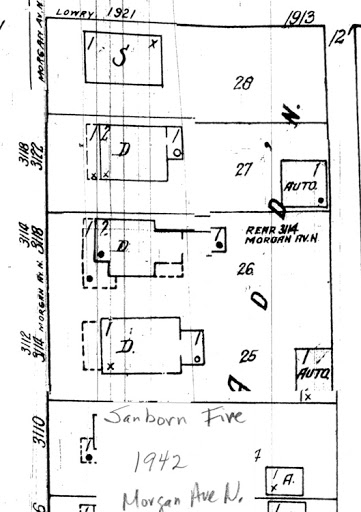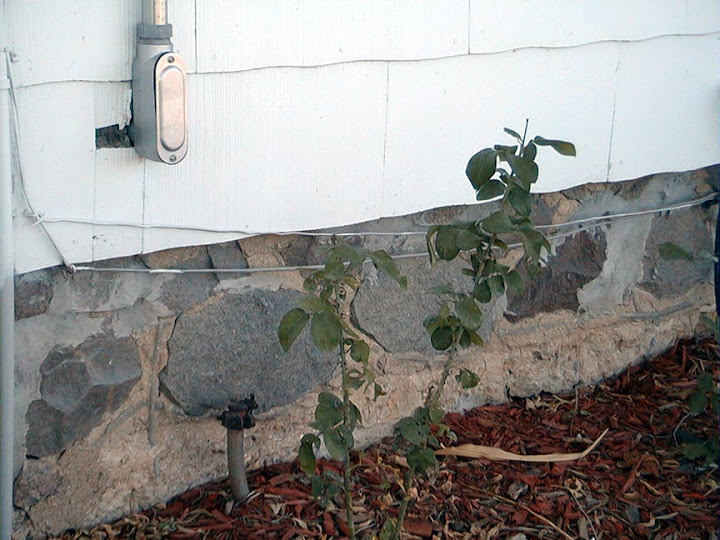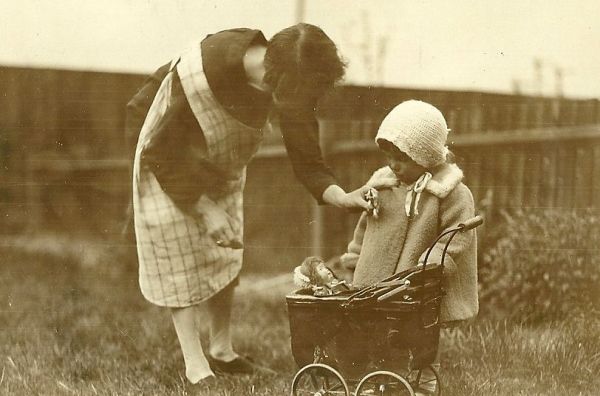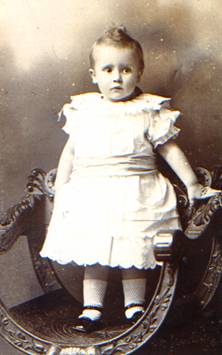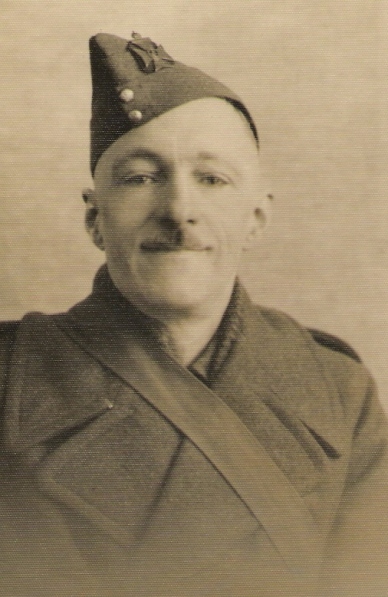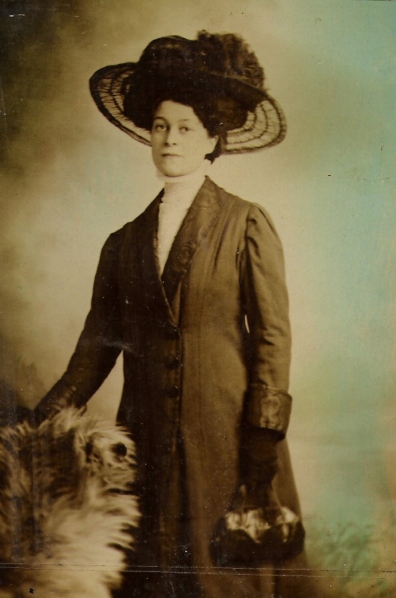.
October is Family History Month in the USA
Family history month. Not genealogy month.
What does that mean to you?
To me, it means adding to my genealogy with "history" and other "fun things" I find along the way.
Like Maps. Here are two Sanborn Fire Maps, of the same street, same addresses in Minneapolis, Minnesota, one from 1912, the second from 1942. These two maps answered many questions we had on Man's great-grandparents. Their address changed, but, so did the street addresses on the homes during this time period. See 3114 and 3118.
1912:
And, in 1942:
Bibles. Family bibles, sometimes the only record we can find for birth, marriage and death dates, if our ancestors lived in a locale that did not require civil registrations. Sometimes those Bibles differ from the civil registrations. No matter. What great family history.
There are always newspaper articles to be found, obituaries and other wise.
In 1940 Joseph and Minnie made a trip back to Georgia to visit relatives they had not seen in over 25 years. A news article was found in the effects of Donald Eugene Bowen (Joseph and Minnie's only grandson) after his death in 1991 stating that Joseph and Minnie were celebrating their 50th. wedding anniversary. The newspaper is not known:
"Wed 50 Years
Mr. and Mrs. Bowen Celebrating Here Today
Mr. and Mrs. J. E. Bowen, who are visiting Mrs. Lela Akins at 342 Whitaker street, are celebrating their fiftieth wedding anniversary in Savannah today.
Residents of Berkeley, Va., they are visiting Mrs. Akins, who is the sister of Mr. Bowen. Mr. Bowen lived in this city several years before 1900 and has many relatives in Wayne County.
Today Mr. and Mrs. Bowen went to Savannah Beach, stopping on the way at Fort Screven where Mr. Bowen's nephew, Rufus. L. Bowen, is stationed as a sergeant in the artillery. They were driven to Tybee by Mrs. C. L. Dean, a niece.
Mr. and Mrs. Bowen are renewing old friendships among Savannahians and are seeing relatives they have not seen in 25 years, they said today. Mrs. Bowen is 68 and Mr. Bowen is 70."
Sometimes even the obituaries can be a bit controversial and maybe even a wee bit humorous. We submit two obituaries for Joseph:
The first obituary was found in the Tuesday, August 31, 1948 issue of the Savannah Morning News, Savannah, Chatham County, Georgia:
"Joseph Eugene Bowen
Funeral services will be held tomorrow afternoon in Darien for Joseph Eugene Bowen, 81, who died in a local hospital Sunday after a long illness.
Services will be conducted at 2 o'clock at the Darien Baptist Church by the Rev. William G. Studer. Burial will be in St. Francis Cemetery, near Darien. The body will be at Fox and Weeks Funeral Home until leaving for the service.
Mr. Bowen is survived by one son, Hayden E. Bowen, Norfolk, Va.; a brother, Ashley Bowen, Jacksonville, Fla.; a grandson, Donald Bowen, Norfolk; and a great-grandson, Carol Bowen, Norfolk."
From the Norfolk Virginia-Pilot, published on August 31, 1948:
"Joseph E. Bowen, 81, father of Hayden E. Bowen, of Norfolk, died Sunday in a hospital at Savannah, Ga., after a long illness.
In addition to his son, he is survived by a brother, Ashley Bowen, of Jacksonville; a grandson, Donald Bowen, of Norfolk, and a great-granddaughter, Carol Bowen, of Norfolk.
Funeral services will be conducted Wednesday at 2 p.m. at the Darien Baptist Church, Darien, Ga., by the Rev. William G. Studer. Burial will be in St. Francis Cemetery.
The body is at the Fox and Weeks Funeral Home, Savannah."
That Carol Bowen, once a great grandson and once a great granddaughter just happens to be yours truly.
How about artwork, a child's hand or your grandmother's last art project?
Notes on the history of towns, counties, even cemeteries can provide some interesting fodder for your family history:
For example, Great Bridge, Norfolk County, Virginia is now known as Chesapeake Virginia. Just a small but mighty important fact in my research. With the help of Uncle Google, I found the Wikipedia page on Great Bridge, which page led me to information on the Great Bridge High School, which my father attended.
One frustrating search ended up with me making the following notes:
Grindstone City was near Port Austin, Huron County, Michigan. It is no longer found on many map programs.
Sometimes the "history" is a photo of a historical marker on the side of the road:
Your pets are part of your family history story too, for example this photo of our Bimbo, taken in Morocco, shows the kitty, but, it also shows so much about our living conditions while we lived there for about 16 months, courtesy of our Uncle Sam. I wrote this caption to accompany the photo:
1971. Stove is Navy issue. See bottom right of photo: 2 water jugs were filled at base for cooking and drinking. Kerosene was used for heating. Behind the bag of garbage, between the stove and cabinets is the propane bottle for the stove. Why no garbage can? Have no idea!

Then, we have 2 yorkie clowns and a kitten. The kitten ended up being a "treat" for a very sweet little girl that Halloween. Yes, we adopted out the kitten.(This is my reference to Halloween in the title. I know, I really stretched it this time! LOL Apologies for the quality of the image, if I ever find that photo again, I will re-scan it. Another part of family history, learning new skills, adapting to newer technology, scanning photos.)
I have been known to include boats, cars, trucks, rv's in my family history. They are an important part of our family history.
Yes, there is a story, and yes, Man survived, with not even one scratch. It could have been much worse:
Houses and how they relate to our family history is another favorite of mine.
One of our homes when we lived in Kenitra Morocoo. There were glass shards on the top of that wall surrounding the yard. To discourage "visitors".
This house, may be, maybe not, the home of Man's g-g-g grandfather in McHenry County Illinois. It was in the same place as the home was shown on old plat maps. I felt the foundation in the middle section looked kept up, but, old. This story still could unfold:
The foundation of what I felt was the oldest part of the home. Even though I was able to track down the current owner of the property, they were uncertain of the history of the home. Boy, wouldn't I have loved to get into the house. No such luck.
I also love to add unusual documents or resources to my family history, one such document was the Certificate of Special Rights of Citizenship I wrote about recently over at Reflections.
October, a great month to expand and expound on your family history. It's not just the census anymore.
 * All the images above will be found in my data base attached to the appropriate family or individual. I currently have over 10.000 such images attached in my data base. It's all about telling the story, the family history.
* All the images above will be found in my data base attached to the appropriate family or individual. I currently have over 10.000 such images attached in my data base. It's all about telling the story, the family history.
** Happy Halloween, take photos, they are part of your family history as well. Yes, even the pumpkins no matter how you decorate them.
BOO!
.
 What do you write about on Halloween, when the country you
live in has no tradition on celebrating Halloween and nothing you can think of
qualifies as spooky? Write about something wild and crazy! And what is better
than writing about the Berlin directories! About the wild and crazy Berlin directories!
What do you write about on Halloween, when the country you
live in has no tradition on celebrating Halloween and nothing you can think of
qualifies as spooky? Write about something wild and crazy! And what is better
than writing about the Berlin directories! About the wild and crazy Berlin directories! You are looking for Heinrich Krause, an honorable importer
of good Cuban cigars? Try your luck with looking for importers (Importeur).
Nope, not there. Next try – merchant (Kaufmann) maybe? Looks like you’re
running out of luck! Why not check cigar, and there he is – Cigarren- und
Tabak-Importeur – listed under the letter C, right where it belongs (or not).
You are looking for Heinrich Krause, an honorable importer
of good Cuban cigars? Try your luck with looking for importers (Importeur).
Nope, not there. Next try – merchant (Kaufmann) maybe? Looks like you’re
running out of luck! Why not check cigar, and there he is – Cigarren- und
Tabak-Importeur – listed under the letter C, right where it belongs (or not).







